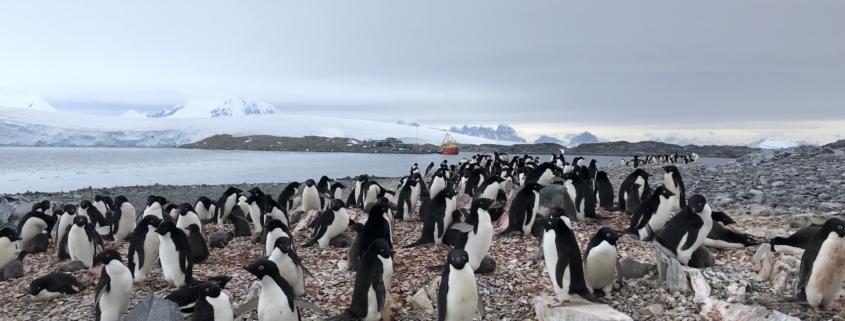 Megan Cimino
Megan CiminoSeabirds
Group PI: Megan Cimino
The primary role of this component is broadly defined within the context of long-term research that seeks to identify and understand the factors that regulate the demography of Adélie penguins with research focused on breeding chronology, breeding biology, foraging ecology and population dynamics.
The core, long-term data associated with these studies are derived primarily from local populations distributed over approximately 150 km2 near Palmer Station. At-sea surveys of abundance and distribution of these and other seabirds over an area of approximately 150,000 km2 provide a larger-scale context for these studies.
This nested approach to hypothesis testing and development capitalizes on databases that span more than three decades, allowing the PAL seabird component to address a broad suite of ecological issues. These include interactions between climate migration and community structure, the effects of landscape geomorphology on biological populations, the mechanics of source-sink population dynamics, and establishing basic conceptual and empirical links between marine and terrestrial ecology.
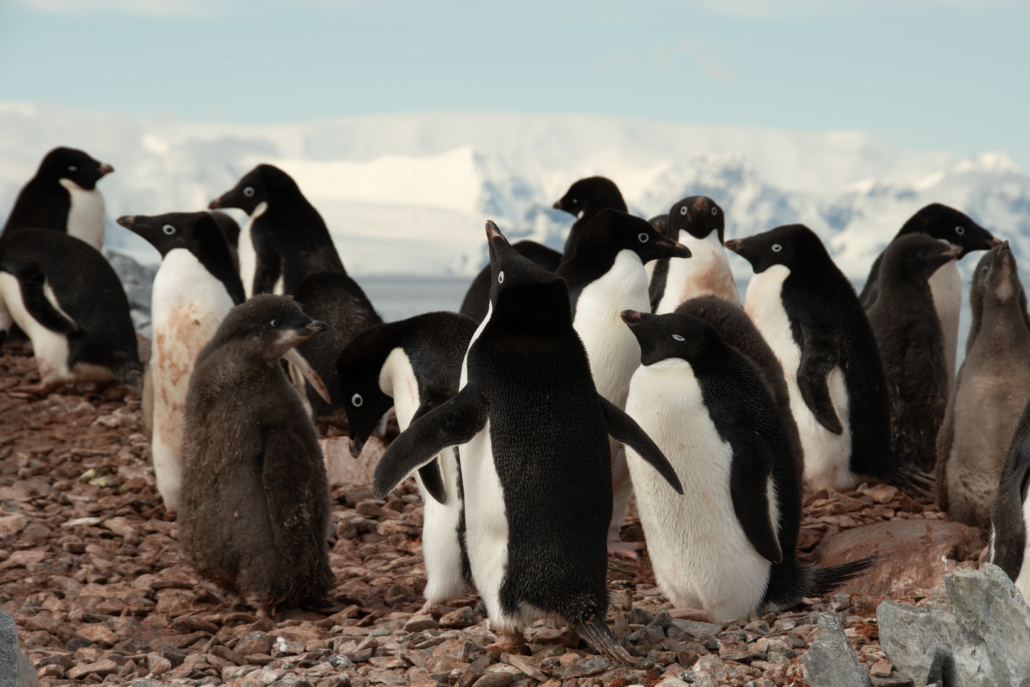
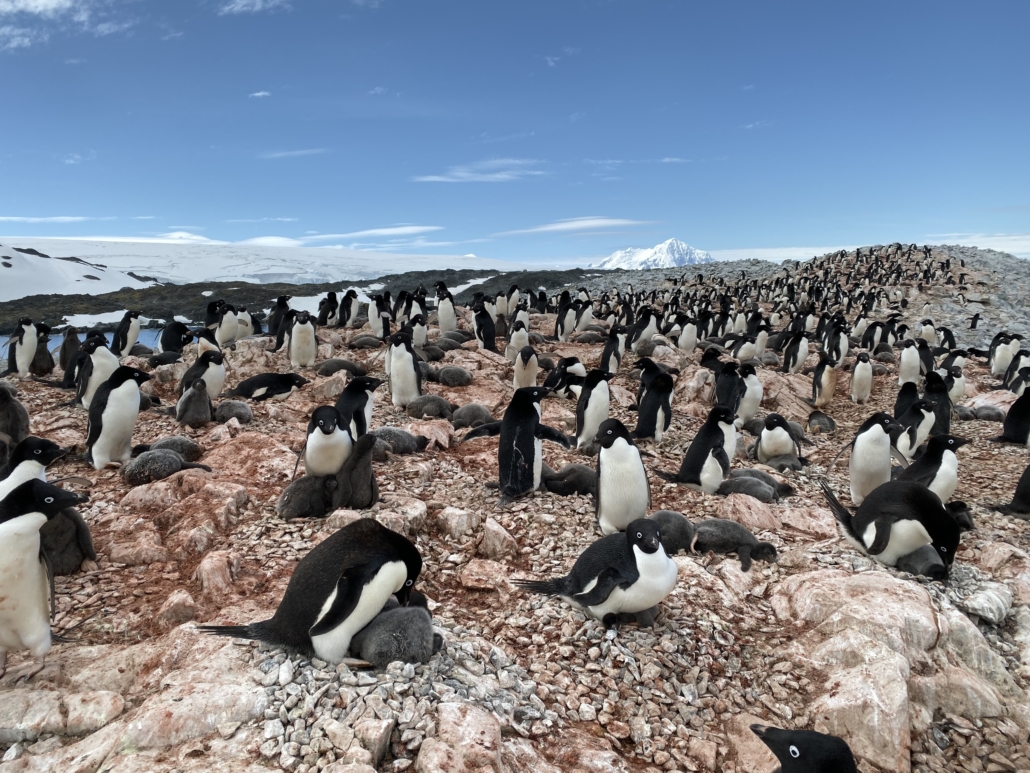
Team Members
Selected Publications
- Larsen G, H Varga, D Johnston, D Patterson-Fraser, M Cimino. 2024. Drone-based monitoring and geomorphology of southern giant petrel nests near Palmer Station, western Antarctic Peninsula. Polar Biology 47: 459-474.
- Gallagher, K, G Selig, M Cimino. 2024 Descriptions and patterns in opportunistic marine debris collected near Palmer Station, Antarctica. Marine Pollution Bulletin 199, 115952.
- Cimino M, M Goerke, S Bent. 2023. Sixty years of glacial retreat behind Palmer Station, Antarctica. Antarctic Science 35(6): 415-417.
- Cimino M, J Conroy, J Bowman, B Connors, A Corso, H Ducklow, W Fraser, A Friedlaender, H Kim, G Larsen, C Moffat, R Nichols, L Pallin, D Roberts, M Roberts, D Steinberg, P Thibodeau, R Trinh, O Schofield, S Stammerjohn. 2023 Long-term patterns in ecosystem phenology near Palmer Station, Antarctica, from the perspective of the Adélie penguin. Ecosphere 14(2): e4417.
- Cimino M, D Patterson-Fraser, S Stammerjohn, W Fraser. 2019. The interaction between island geomorphology and environmental parameters drives Adélie penguin breeding phenology on neighboring islands near Palmer Station. Ecology and Evolution, DOI 10.1002/ece3.5481
- Cimino M, H Lynch, V Saba, M Oliver. 2016. Asymmetric response of Adélie penguins to Antarctic climate change. Scientific Reports 6,28785.
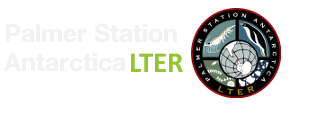
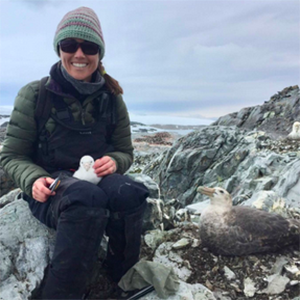
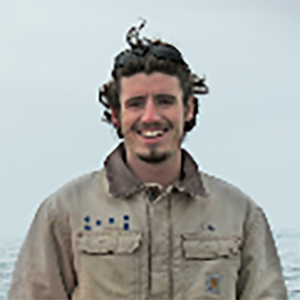






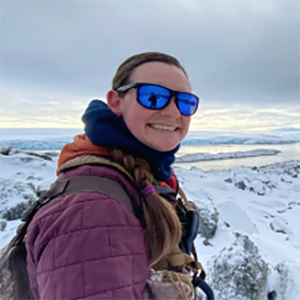

 This site was developed with the support of the National Science Foundation under Grant No. OPP-2224611 and OPP-2026045. Any opinions, findings, and conclusions or recommendations expressed in this material are those of the authors and do not necessarily reflect the views of the National Science Foundation.
This site was developed with the support of the National Science Foundation under Grant No. OPP-2224611 and OPP-2026045. Any opinions, findings, and conclusions or recommendations expressed in this material are those of the authors and do not necessarily reflect the views of the National Science Foundation.